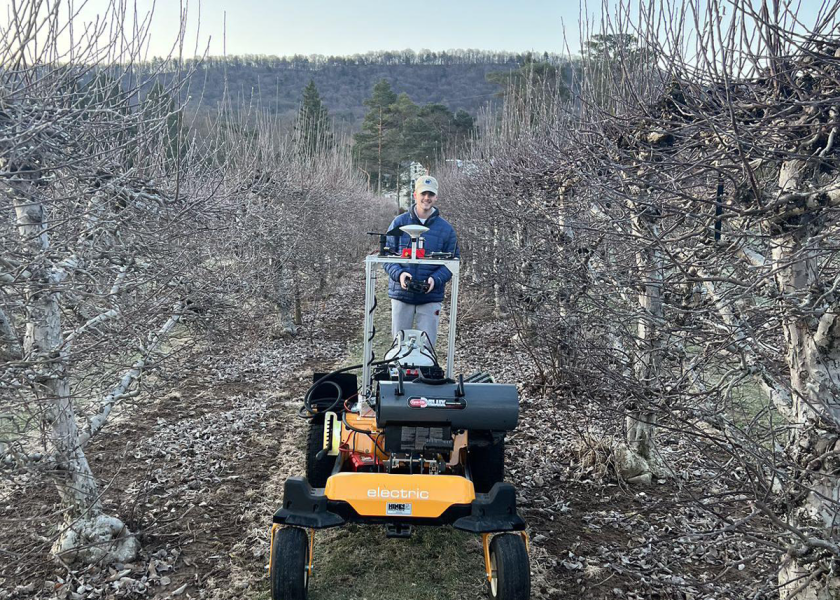Research examines intelligent systems to prevent freeze damage

Researchers at Penn State University have developed a system that helps tree fruit growers make heating decisions based on real-time temperature and wind-direction data.
The university reported that the system includes a temperature-sensing device and a propane heater in an unmanned ground vehicle that can adjust angle and direction based on real-time data.
According to the university, the study's results show the cyber-physical frost protection system reduced damage to apple tree buds in two tests at low temperatures.
Long He, assistant professor of agricultural and biological engineering at Penn State, told the university wind can complicate growers’ efforts to prevent frost damage, as it can mitigate any beneficial effects as temperatures fall below 30 degrees Fahrenheit.
“Wind is often treated as an uncontrollable factor when growers are implementing heating tasks in orchards because it greatly affects heating performance,” He said. “To overcome the challenges growers face, we developed a system capable of monitoring the environment and taking actions in response to the monitored data, using temperature and wind sensors to perceive environmental changes and then make corresponding heating decisions.”
The research team also paired this research with earlier research at the university incorporating drone-based thermal image cameras to create a heat-demand map to better apply heat in the orchard.
The university said the equipment used in the study came from off-the-shelf parts. While more research is needed, the results look promising.
“One of the things that we got from this project is, if you had a very large orchard, you could have path-planning involving multiple units with multiple heaters running between the tree rows guided by an aerial drone monitoring the canopy temperatures,” Paul Heinemann, professor of agricultural and biological engineering at Penn State, said in the university's report. “The aerial drone would send a signal to a heating unit vehicle that says, ‘drive over to this place because it's getting too cold there.’ And then it could tell a different heater unit to go to another spot. From the models, we know how much heat needs to be put in there, and how long it will take before it cools down again.”







